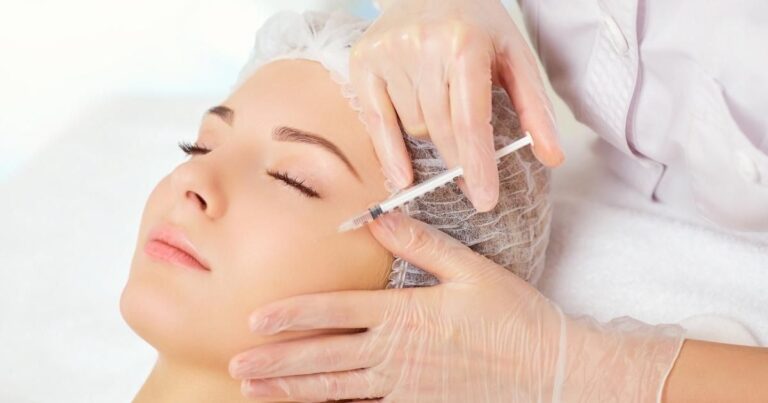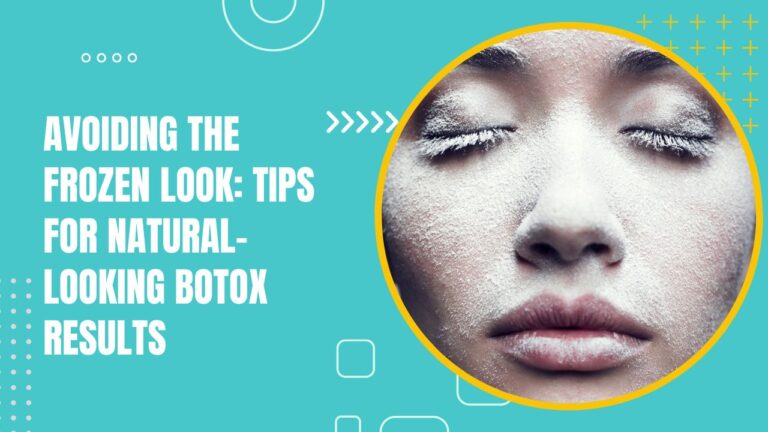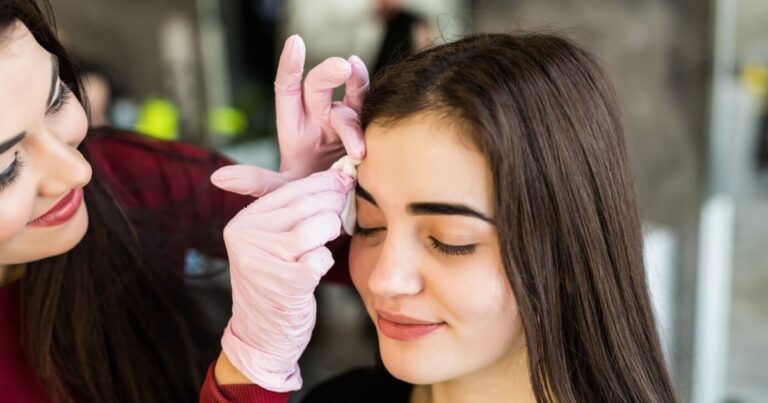Botox, a popular cosmetic treatment, is often used to reduce wrinkles and fine lines. However, many individuals are concerned about its potential effects on fertility. This article explores the relationship between Botox and reproductive health, providing valuable insights for those considering its use.
Understanding Botox and Its Uses
Botox, derived from botulinum toxin, is primarily used for cosmetic purposes. It works by temporarily paralyzing muscles, reducing the appearance of wrinkles. Beyond aesthetics, Botox is also used to treat medical conditions like migraines and excessive sweating.
- Cosmetic Applications : Botox is widely used to smooth facial lines and wrinkles.
- Medical Uses : It treats conditions such as chronic migraines, muscle spasms, and hyperhidrosis.
The Science Behind Botulinum Toxin
Botulinum toxin, the active ingredient in Botox, blocks nerve signals to muscles. This action prevents muscle contractions, leading to a smoother appearance. While effective for cosmetic purposes, its impact on other bodily functions, including fertility, is a topic of interest.
- Mechanism of Action : Blocks neurotransmitter release, preventing muscle contractions.
- Potential Systemic Effects : Concerns about its impact beyond the injection site.
Botox and Reproductive Health
Potential Effects on Hormonal Balance
Botox’s influence on hormonal balance is not well-documented. However, some studies suggest that it might affect neurotransmitter release, potentially impacting hormone regulation. More research is needed to understand its full effects on the endocrine system.
Botox Youthful Restoration helps make your face look younger and smoother
it works by relaxing wrinkles to give you a fresher appearance
Book A Consultation With Dr Tarek Bayazid
Top-rated Plastic Surgeon For Botox in Dubai
Installment Plan Available
- Hormonal Disruption : Possible interference with hormone regulation.
- Need for Further Research : Limited studies on Botox’s impact on hormones.
Impact on Ovulation and Menstrual Cycles
There is no conclusive evidence that Botox directly affects ovulation or menstrual cycles. However, any potential hormonal disruption could theoretically influence these processes. Women considering Botox should monitor their cycles and consult healthcare providers if changes occur.
- Ovulation Concerns : No direct evidence of impact.
- Menstrual Cycle Monitoring : Importance of tracking changes post-treatment.
Fertility Concerns for Botox Users
Research on Botox and Pregnancy Outcomes
Current research indicates no significant association between Botox use and adverse pregnancy outcomes. A 2019 systematic review found no substantial risks, but caution is advised due to limited human studies.
- Pregnancy Safety : No significant risks identified in studies.
- Caution Advised : Limited human research necessitates careful consideration.
Safety Considerations for Women Trying to Conceive
Women trying to conceive should discuss Botox use with their healthcare providers. While no direct link to fertility issues is established, it’s essential to weigh potential risks and benefits.
- Consultation Importance : Discuss with healthcare providers before use.
- Risk-Benefit Analysis : Consider potential impacts on fertility.
Botulinum Toxin and Male Fertility
Effects on Sperm Production and Quality
Research on Botox’s effects on male fertility is sparse. There is no evidence suggesting it directly impacts sperm production or quality. However, men should remain informed and consult healthcare professionals if concerned.
- Sperm Health : No direct evidence of impact.
- Consultation Recommended : Discuss concerns with healthcare providers.
Considerations for Men Planning Parenthood
Men planning to become fathers should consider potential risks associated with Botox. While no direct effects on fertility are documented, discussing treatment plans with a healthcare provider is prudent.
- Family Planning : Consider potential impacts on fertility.
- Professional Guidance : Seek advice from healthcare providers.
Alternative Cosmetic Treatments for Fertility-Conscious Individuals
Non-Invasive Options
For those concerned about Botox’s potential effects on fertility, non-invasive cosmetic treatments offer alternatives. Options like chemical peels and microdermabrasion provide skin rejuvenation without the use of botulinum toxin.
- Chemical Peels : Exfoliate and rejuvenate skin.
- Microdermabrasion : Non-invasive skin resurfacing technique.
Natural Skincare Approaches
Natural skincare approaches, such as using organic products and maintaining a healthy lifestyle, can enhance skin appearance without potential fertility risks. These methods focus on nourishing the skin from within.
- Organic Products : Use of natural ingredients for skincare.
- Healthy Lifestyle : Diet and hydration for skin health.
How Long After Botox Can You Get Pregnant
Recommended Waiting Periods
There is no standardized waiting period after Botox before attempting pregnancy. However, consulting a fertility specialist can provide personalized recommendations based on individual health factors.
- No Standard Guidelines : Consult with specialists for advice.
- Personalized Recommendations : Tailored advice from healthcare providers.
Consulting with a Fertility Specialist
Fertility specialists can offer guidance on the timing of pregnancy after Botox. They consider individual health and treatment history to provide the best advice.
- Specialist Guidance : Seek expert advice on timing.
- Individualized Care : Consider personal health factors.
Can Botox Cause Miscarriage
Current Research Findings
Current research does not establish a direct link between Botox and miscarriage. However, due to limited studies, caution is advised for expectant mothers considering Botox.
- No Direct Link : Research does not show a connection.
- Caution Advised : Limited studies necessitate careful consideration.
Precautionary Measures for Expectant Mothers
Expectant mothers should avoid Botox to minimize potential risks. Consulting healthcare providers ensures informed decision-making regarding cosmetic treatments during pregnancy.
- Avoidance Recommended : Minimize potential risks.
- Professional Consultation : Discuss concerns with healthcare providers.
Does Botox Affect Hormone Levels
Potential Endocrine Disruption
Botox may potentially disrupt hormone levels, although evidence is limited. Monitoring hormonal changes after treatment is advisable for those concerned about endocrine health.
- Possible Disruption : Limited evidence of hormonal impact.
- Monitoring Advised : Track changes post-treatment.
Monitoring Hormonal Changes After Botox Treatment
Individuals concerned about hormonal changes should monitor their health after Botox. Consulting healthcare providers ensures any significant changes are addressed promptly.
- Health Monitoring : Track hormonal changes.
- Professional Guidance : Seek advice for significant changes.
Long-Term Effects of Botox on Reproductive Health
Cumulative Impact of Regular Botox Use
The long-term effects of regular Botox use on reproductive health are not well-studied. Individuals should consider potential cumulative impacts and discuss concerns with healthcare providers.
- Limited Studies : Long-term effects not well-documented.
- Professional Consultation : Discuss concerns with healthcare providers.
Reversibility of Potential Fertility Issues
Potential fertility issues from Botox use are likely reversible, but more research is needed. Individuals should remain informed and consult healthcare providers for guidance.
- Reversibility Likely : Potential issues may be reversible.
- Need for Research : More studies required for conclusive evidence.
Discussing Botox with Your Healthcare Provider
Important Questions to Ask
When considering Botox, individuals should ask healthcare providers about potential fertility impacts. Key questions include the safety of Botox during pregnancy and its effects on hormonal balance.
- Safety Concerns : Inquire about pregnancy safety.
- Hormonal Impact : Discuss potential endocrine effects.
Creating a Personalized Treatment Plan
Healthcare providers can help create personalized treatment plans that consider individual health and fertility goals. Open communication ensures informed decision-making.
- Individualized Plans : Tailored to personal health needs.
- Open Communication : Ensure informed decisions.
Stats:
1. According to a study published in the Journal of Neuroscience, botulinum toxin can potentially affect neurotransmitter release beyond the injection site. (Source: https://www.jneurosci.org/content/38/11/2877)
2. The FDA classifies Botox as a Pregnancy Category C drug, indicating that animal studies have shown adverse effects on the fetus, but there are no adequate studies in humans. (Source: https://www.fda.gov/drugs/postmarket-drug-safety-information-patients-and-providers/botox-onabotulinumtoxina-and-botox-cosmetic-onabotulinumtoxina-information)
3. A 2019 systematic review published in the Journal of Clinical Medicine found no significant association between botulinum toxin use and adverse pregnancy outcomes. (Source: https://www.ncbi.nlm.nih.gov/pmc/articles/PMC646296
FAQs
Can Botox affect fertility in women?
Botox is not directly linked to fertility issues in women. However, potential hormonal disruptions warrant caution. Consulting healthcare providers ensures informed decisions.
Is Botox safe for men planning to become fathers?
There is no evidence suggesting Botox affects male fertility. Men should discuss any concerns with healthcare providers to ensure informed decisions.
How long should I wait to get pregnant after Botox?
There is no standardized waiting period after Botox before pregnancy. Consulting a fertility specialist provides personalized recommendations based on individual health factors.






